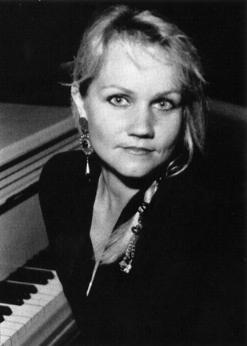Existential Twerking
It’s not exactly astonishing to claim that too many people in our society crave attention over achievement. Although some might think Kim Kardashian a vapid American embarrassment, her lunar eclipse of a backside her one claim to our short attention spans, she makes no pretense of artistry.
When Miley Cyrus strips down and twerks at Robin Thicke, no one is thinking of achievement. As David Letterman used to say of Madonna: “I think she likes to shock us.”
Let’s just say that I’m not exactly encouraging my daughters to be Miley Cyrus (or Robin Thicke) fans. However, I am encouraging them to speak up when a math or science question is asked. I want them to have the intelligence to grasp the difference between art and spectacle, meaning and pretense.
Art demands that we work inside out, so that our insight and skills exceed our desire to be noticed.
Although many are enamored of fame and shock value, the true achievers tend to be the teacher who struggles through traffic and rushes into school at an awful hour to nurture the minds of our next generation, the scientist who discovers the next breakthrough in epigenetics, and the artist who must compete with the twerkers to show us the tragedy and hilarity of our times. This is not to say that artists can’t be outrageous—just look at Salvador Dali—but their fame derives from genuine achievement.
These teachers, scientists, and artists are seldom the subject of discussion all over the internet. It’s healthy for those of us in the arts to sometimes reconsider why we’re in the arts in the first place. After all, we are competing against many forms of attention-grabbing.
Of course, any art form can be both shocking and substantial, not to mention hugely entertaining. We may be losing our ability to discriminate between what remains art at its core and what is essentially existential twerking.
According to the Global Language Monitor, one of the most commonly used words over the past year was “Photobomb.”
This would be rather difficult to explain should a superior alien race land in our midst. If they glimpsed a video of Miley Cyrus licking a hammer while swinging naked on a wrecking ball, they might think it merciful to annihilate us on the spot.
There have been several seminal moments that might contribute to this attention versus achievement cultural tendency.
Since the mid 1990s the internet has had an almost immeasurable effect on commerce and culture. It is in many ways an unprecedented medium; almost anyone on earth may have an audience at any time.
This has also led to sound bite journalism. Complex issues that affect large numbers of people must be reduced to a few watered down paragraphs. A huge amount of free information that spreads over the globe can also be a wonderful thing. When Philo Farnsworth invented television, he was convinced he had given the world the greatest educational tool ever conceived.
Our ability to wade through this flood of choices, and the temptation to submit to spectacle—the easiest choice—is the concern.
Thus, Miley Cyrus and her fondness for tools attracts millions of hits on YouTube, and the arts are affected.
This is not to say that artists can’t be outrageous—just look at Salvador Dali—but their fame derives from genuine achievement.
I recently spoke with a well-regarded artistic director about a children’s play I’d written. The play concerns an eleven-year-old-boy who feels it’s unethical to kill bugs, which leads him to wonder about the value of all life, including his own. He’s teased for it and must decide if sticking up for one’s principles is worth it.
This was inspired by the case of Troy Davis, who was killed by lethal injection in 2011. Believe it or not, the play has many comedic elements. Without reading any of it, the artistic director told me that he loved the idea, but he was bound by income needs to only produce plays with “really popular titles of already existing stories.”
In other words, it’s much easier and more profitable to play it safe with well-known picture books. But is this still art?
There are excellent picture books out there that are insightful, entertaining, and carefully thought out. However, the tendency to play it safe can be a dangerous habit.
This is a business; I get it. The arts need revenue to continue to create art and pay artists. And I sympathize with his predicament. However, when our artistic directors are so desperate to grab attention, so unwilling to challenge their audience, I suspect they become willing victims of attention over achievement syndrome.
Consider the Broadway shows being produced fifty years ago to today. In 1964, Broadway was packed with substantial plays such as Edward Albee’s Tiny Alice, Arthur Miller’s The Crucible, and Leonard Bernstein’s West Side Story. Among the highest grossing shows of 2014 were The Lion King, Spiderman, and Aladdin.
The razor thin line between Broadway and Vegas makes being a playwright in this age feel like they’re fighting a typhoon with a sponge. We’ve heard it all before—differences in degree make differences in kind, quantitative change makes qualitative change—but it can still be easy to lose sight of what’s happening all around us.
In all honesty, it affects me, too. If Justin Bieber’s agent approached me about penning a musical based on his life…never mind—bad example. I still have a pesky modicum of dignity left. However, if Disney calls, pleading with me to adapt Frozen for a Broadway production, there would likely be a moment of fierce rationalization before signing on.
Years ago I had the good fortune to see Eva Cassidy sing in a nearly empty bar. This was when she still almost completely unknown, shortly before her death.
It remains one of the most moving, haunting yet humble performances I’ve ever seen. She was the embodiment of craving achievement over attention. I can virtually guarantee that nothing on earth could have persuaded her to be caught twerking with Robin Thicke.
[caption]
"Eva the the piano"[/caption]We need the arts to remind us of how moving and hilarious life can be. If we—and our audience—are alternating between Facebook posts that involve hammer licking, watered down partisan political arguments, and online quizzes to figure out which Smurf we’d be, this generation might just represent the slow death of a vibrant American theatre.
Before we all shake fists of despair at the heavens and our fellow humans, perhaps we should remember that Eva Cassidy’s spirit is still with us. I’m certain we all know artists who may not receive the notoriety they richly deserve, but who inspire us with their dedication and creative joy. The truth has a stubborn tendency to rise to the top.
If we forget this, we’re all guilty of existential twerking.



Comments
The article is just the start of the conversation—we want to know what you think about this subject, too! HowlRound is a space for knowledge-sharing, and we welcome spirited, thoughtful, and on-topic dialogue. Find our full comments policy here
“In 1964, Broadway was packed with substantial plays such as
Edward Albee’s Tiny Alice, Arthur Miller’s The Crucible, and Leonard
Bernstein’s West Side Story. Among the highest grossing shows of 2014 were The
Lion King, Spiderman, and Aladdin. “
This is (potentially) an unfair comparison. What I need to
know is how high the grosses of those shows you cite from 1964; were they also “the
highest grossing shows” of the year? Because this season, we’ve had comparable
fare on Broadway: Ayad Akhtar’s Disgraced and The Curious Incident of the Dog
in the Night-time and we’re soon to have Fun Home. And why keep it just to
Broadway, when Off-Broadway is often just a few blocks away, and the
distinction means little to the average theatergoer. Playwrights Horizons, the Public Theater, the New York Theater Workshop – and on and on – are all doing “substantial plays.”
Plus I like The Lion King!
I agree with your assessment that the news is not all bad. Substantial plays are still being written and produced. Still, it does seem worthwhile to point out that we're developing a societal tendency to crave attention over achievement--and that this tendency might affect the arts.
And there's nothing wrong whatsoever with liking The Lion King! If a given show is simply a lot of fun, I'm all for it. My concern is more connected to green-lighting a multitude of shows based almost exclusively on the amount of commerce they might bring in rather than their artistic merit.
I recently started a private list as a longtime producer of emerging and mid-career artists in dance and related forms. It's called The "Glory Be to Me" Register, and I'm the only one who can see it. It currently contains two so-called generic downtown artists whose entire work ethic and career plan are to frame the self in a halo of promotion and superiority , and to inspire an audience to enthusiastically/abjectly follow. As I work in a different kind of downtown on a rural island, even though devoted to placing a diverse array of progressive and provocative artists in paid creative residencies, there is nothing that would compel me to introduce these characters to the island. I am happy that they make their way with significant support to date. It is about the con of self-glorification that stands in for substance and devotion to community that sticks in the craw.
I applaud you for your devotion to community and the arts! Your sense of giving rather than self-glorification is exactly what we need. Sooner or later, the truth has a stubborn tendency to rise to the top.